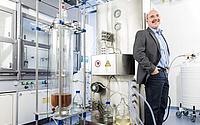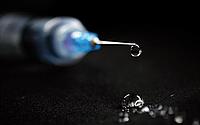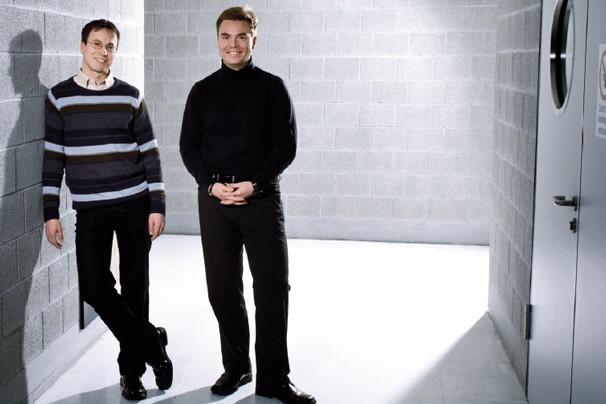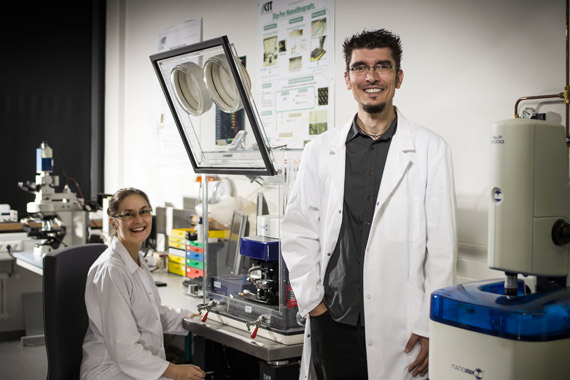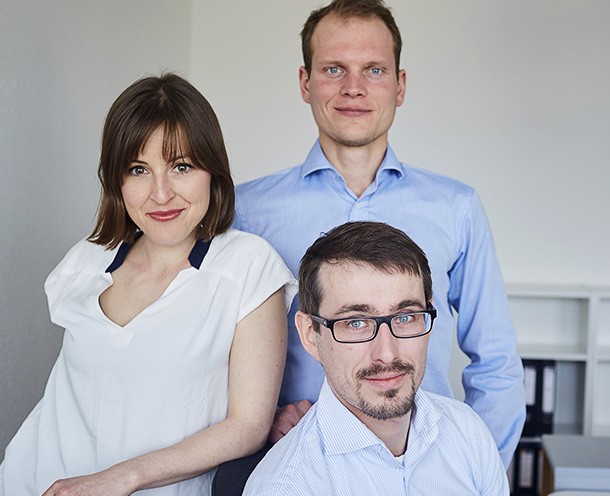- Climate, Environment & Health
- Production
PROTEINS IN THE WASH

When the washing machine starts up at home, dirt particles are separated from the textile fibers and rinsed out. Proteins are not dirty laundry, but they are comparable in the simplest sense: To obtain them for drug development and many other applications, they have to be separated from a mixture of very different molecules. This protein purification can be exceedingly complex, depending on the target protein and its properties. In most cases, multi-step processes are used, for example chromatography or centrifugation. Matthias Franzreb is taking a different approach with magnetic separation: the 'washing machine' he and his research team have developed enables protein purification with fewer steps and less effort than before.
„Today, magnetic bead technology is already being used on a laboratory scale. However, these devices are not suitable for use in the pharmaceutical industry with its high throughputs and quality requirements," explains Matthias Franzreb, who has been researching how magnets can be used in bioprocess engineering at the KIT Institute for Functional Interfaces for almost 20 years. However, Franzreb and his team are aiming at precisely this large-scale application: "Large magnetic separators already exist but they tend to be used for metal processing and mines. To extract proteins for pharmaceutical use, the separators have to be developed differently. For while in metal processing it doesn't matter if a small percentage of the material settles in nooks and crannies, this is unacceptable in drug production."
Together with the company Andritz AG, Franzreb has succeeded in developing a demonstrator for the large-scale environment that meets all the requirements of the pharmaceutical industry and is currently being tested for its performance. In contrast to magnetic separators previously used in laboratories, this separator contains a core of rotating and static plates, up to 40 per separator. These sit in a cylindrical separation vessel around which a magnetic coil is mounted.
To separate the proteins of interest, special nanomagnetic particles are added to the vessel. These bind the target protein to themselves and settle on the perforated rotor-stator plates. In order to wash out the unwanted particles, every second of the superimposed plates is made to rotate. The resulting turbulence efficiently and thoroughly washes out the separation cylinder. Subsequently, more and more cycles can be run, making near-permanent operation of the separator possible, explains engineer Franzreb: "Operation is limited by the lifetime of the magnetic particles used, which we are currently testing. It looks like the particles will hold up long enough to allow economical operation."
Franzreb's magnetic separator can replace at least the first three steps of common protein purification- centrifugation, filtration, and an initial chromatography step. He hopes to successfully introduce it to companies that use bioprocess technology. In the next steps with cooperation partner Andritz, the device will be loaned out to different locations in industry, for example, to extract proteins from a serum for veterinary medicine. Matthias Franzreb is keen to see the KIT magnetic separator reach the market as an innovation: "As an engineer, it is my goal that my inventions are used."
"As a researcher, you have an idea, you develop it on a laboratory scale, you patent it. But to turn it into a product, we need industrial partners."
Images: KIT
